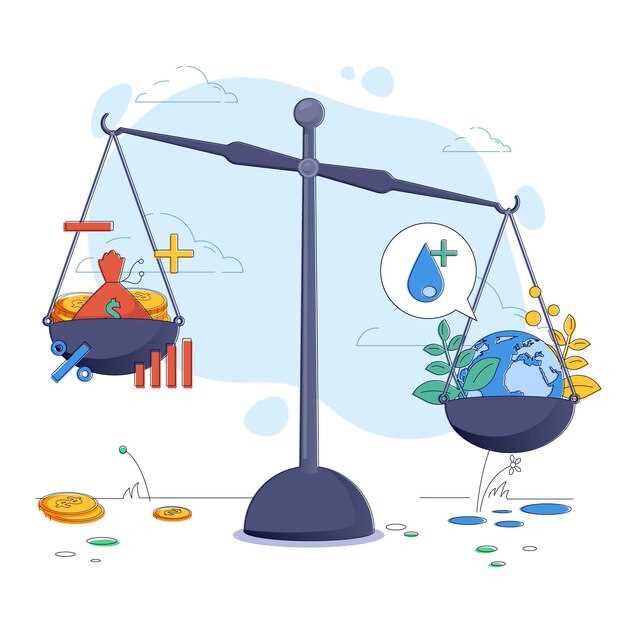
In today’s world, the issue of economic justice and wealth disparity has become increasingly prominent. It is a topic that demands our attention and requires us to explore innovative strategies to address the imbalances that exist within our society. The quest for a fair and equitable economy is not just a moral imperative, but also a crucial step towards building a sustainable future for all.
At its core, achieving economic justice means ensuring that every individual has equal opportunities to thrive and succeed, regardless of their background or circumstances. It means dismantling the barriers that prevent marginalized communities from accessing resources, education, and employment opportunities. It requires us to challenge the status quo and question the systems that perpetuate inequality.
One key strategy in this pursuit is the promotion of inclusive economic policies that prioritize the needs of the most vulnerable members of society. This involves implementing measures that provide a safety net for those who are struggling, such as affordable housing, healthcare, and education. By investing in social programs and infrastructure, we can create a more level playing field and empower individuals to break free from the cycle of poverty.
Another crucial aspect of achieving economic justice is addressing the root causes of wealth disparity. This requires us to examine the structural inequalities that exist within our economic system, such as unequal distribution of resources and power. By advocating for fair taxation policies and regulations that promote transparency and accountability, we can ensure that wealth is distributed more equitably and that the benefits of economic growth are shared by all members of society.
In conclusion, achieving economic justice and addressing wealth disparity is a complex and multifaceted task. It requires a comprehensive approach that encompasses both short-term interventions and long-term systemic changes. By implementing inclusive policies, challenging existing power structures, and promoting transparency and accountability, we can work towards creating a fair and equitable economy that benefits everyone, regardless of their socioeconomic status.
Promoting Equal Access to Education and Skills Development
In this section, we will explore the importance of ensuring equal access to education and skills development opportunities for all individuals, regardless of their socio-economic background. By promoting equal access, we can address the existing disparities in wealth and create a more just and equitable society.
1. Breaking Barriers to Education
One key aspect of promoting equal access to education is breaking down the barriers that prevent certain individuals from pursuing educational opportunities. These barriers can include financial constraints, lack of resources, discrimination, and limited educational infrastructure. By addressing these barriers, we can create a level playing field for all individuals to access quality education.
2. Enhancing Skills Development Programs
Skills development programs play a crucial role in empowering individuals to thrive in the workforce and contribute to economic growth. However, these programs are often inaccessible to marginalized communities due to various factors such as limited availability, high costs, and lack of awareness. By enhancing and expanding skills development programs, we can ensure that everyone has the opportunity to acquire the necessary skills for economic success.
- Implementing targeted scholarships and financial aid programs to support individuals from disadvantaged backgrounds in pursuing higher education.
- Expanding vocational training programs to provide alternative pathways for individuals who may not choose or have access to traditional academic routes.
- Collaborating with businesses and industries to develop apprenticeship programs that offer practical training and job opportunities for individuals seeking to enter the workforce.
- Investing in technology and digital literacy programs to bridge the digital divide and equip individuals with essential skills for the modern economy.
By promoting equal access to education and skills development, we can empower individuals to overcome socio-economic barriers, reduce wealth disparity, and create a more inclusive and prosperous society for all.
Implementing Progressive Taxation Policies
Incorporating measures to establish progressive taxation policies is a crucial step towards achieving economic fairness and reducing wealth inequality. By implementing a system that places a greater tax burden on individuals with higher incomes, society can work towards creating a more equitable distribution of wealth and resources. This section explores the importance of progressive taxation policies and their potential impact on economic justice.
The Concept of Progressive Taxation
Progressive taxation refers to a tax system where the tax rate increases as the taxable income of an individual or entity increases. This approach aims to ensure that those who earn more contribute a larger proportion of their income towards public services and social welfare programs. By implementing progressive tax policies, governments can generate additional revenue to fund essential services while simultaneously addressing wealth disparity.
Advantages and Challenges
Implementing progressive taxation policies offers several advantages in promoting economic justice. Firstly, it allows for a more equitable distribution of the tax burden, ensuring that those with higher incomes contribute proportionally more to society. This can help bridge the wealth gap and provide resources for social programs that benefit the less privileged. Additionally, progressive taxation can help reduce income inequality by redistributing wealth and promoting social mobility.
However, implementing progressive taxation policies also presents challenges. Critics argue that higher tax rates on the wealthy may discourage investment and hinder economic growth. It is essential to strike a balance between generating revenue for public services and maintaining a favorable environment for economic development. Effective implementation requires careful consideration of the potential consequences and the establishment of fair and transparent tax structures.
In conclusion, implementing progressive taxation policies is a crucial strategy for achieving economic justice and addressing wealth disparity. By ensuring that those with higher incomes contribute a larger share of their earnings, society can work towards a more equitable distribution of wealth and resources. However, it is essential to carefully consider the potential advantages and challenges associated with progressive taxation to strike a balance between economic growth and social welfare.
Encouraging Fair Trade and Ethical Business Practices

In this section, we will explore various approaches to promote fair trade and ethical business practices, aiming to create a more just and equitable economic system. By fostering transparency, accountability, and responsible decision-making, we can address wealth disparity and promote economic justice.
1. Promoting Transparency
One key strategy to encourage fair trade and ethical business practices is to promote transparency within organizations and supply chains. Transparency allows stakeholders to have access to information about the production process, working conditions, and environmental impact. By providing clear and accurate information, businesses can build trust with consumers and ensure that their practices align with ethical standards.
2. Implementing Fair Trade Certification
Fair trade certification is a valuable tool in promoting fair trade practices. It ensures that producers receive fair wages, work in safe conditions, and have access to social and environmental benefits. By supporting fair trade certified products, consumers can contribute to a more equitable distribution of wealth and support businesses that prioritize social and environmental responsibility.
| Benefits of Fair Trade Certification | Examples |
|---|---|
| Ensures fair wages for producers | Coffee produced by fair trade cooperatives in Latin America |
| Promotes safe working conditions | Textiles produced by fair trade factories in Southeast Asia |
| Supports community development projects | Handicrafts made by fair trade artisans in Africa |
By actively seeking out and supporting fair trade certified products, consumers can contribute to the growth of ethical businesses and help reduce wealth disparity.
In conclusion, encouraging fair trade and ethical business practices is crucial in addressing wealth disparity and achieving economic justice. Through transparency and fair trade certification, we can promote responsible decision-making and create a more equitable economic system that benefits both producers and consumers.
Strengthening Social Safety Nets and Welfare Programs
In this section, we will explore ways to enhance and fortify the systems that provide support and assistance to individuals and families in need. By bolstering social safety nets and welfare programs, we can strive towards a more equitable society where everyone has access to essential resources and opportunities.
Enhancing Social Safety Nets:
One approach to strengthening social safety nets is to expand the coverage and scope of existing programs. This can involve increasing the eligibility criteria to include more individuals and families who are currently excluded from receiving support. Additionally, it may be necessary to raise the benefit levels to ensure that those in need receive an adequate amount of assistance to meet their basic needs.
Improving Welfare Programs:
Another strategy is to improve the effectiveness and efficiency of welfare programs. This can be achieved through better coordination and integration of various services, such as healthcare, education, and job training, to provide a comprehensive support system. By addressing the root causes of poverty and inequality, welfare programs can help individuals and families break the cycle of dependency and achieve long-term economic stability.
Promoting Financial Literacy:
In order to empower individuals and families to make informed financial decisions, it is crucial to promote financial literacy. By providing education and resources on topics such as budgeting, saving, and investing, we can equip people with the skills and knowledge necessary to manage their finances effectively. This can contribute to reducing wealth disparity and promoting economic justice.
Investing in Early Childhood Development:
An essential aspect of strengthening social safety nets is investing in early childhood development. By providing access to quality early education and healthcare services, we can give children from disadvantaged backgrounds a solid foundation for future success. This investment can help break the cycle of poverty and ensure equal opportunities for all children, regardless of their socioeconomic background.
Collaborating with Nonprofit Organizations:
Collaboration with nonprofit organizations can play a vital role in strengthening social safety nets and welfare programs. These organizations often have expertise in addressing specific social issues and can provide valuable support and resources to complement government efforts. By working together, we can create a more comprehensive and effective safety net for those in need.
In conclusion, by strengthening social safety nets and welfare programs, we can strive towards economic justice and address wealth disparity. Through expanding coverage, improving effectiveness, promoting financial literacy, investing in early childhood development, and collaborating with nonprofit organizations, we can create a more equitable society where everyone has the opportunity to thrive.
Fostering Entrepreneurship and Small Business Development
Promoting the growth of entrepreneurship and supporting the development of small businesses are crucial components in addressing economic disparities and achieving a more just society. Encouraging individuals to pursue their entrepreneurial aspirations and providing them with the necessary resources and support can lead to job creation, innovation, and economic empowerment.
Creating an Entrepreneurial Ecosystem
Building a conducive environment for entrepreneurship involves establishing a robust ecosystem that nurtures and supports aspiring entrepreneurs. This includes providing access to affordable financing options, mentorship programs, and networking opportunities. By fostering collaboration and knowledge sharing, entrepreneurs can learn from each other’s experiences and enhance their chances of success.
Supporting Small Business Development
Small businesses play a vital role in driving economic growth and reducing wealth disparities. Governments and organizations can support small business development by offering targeted financial assistance, simplifying regulatory processes, and providing training and capacity-building programs. Additionally, fostering partnerships between small businesses and larger corporations can create opportunities for knowledge transfer and market access.
| Benefits of Fostering Entrepreneurship and Small Business Development |
|---|
| 1. Job Creation |
| 2. Innovation and Technological Advancement |
| 3. Economic Empowerment |
| 4. Increased Competition and Market Diversity |
| 5. Community Development and Revitalization |
In conclusion, fostering entrepreneurship and supporting small business development are essential strategies for promoting economic justice and addressing wealth disparities. By creating an entrepreneurial ecosystem and providing support to small businesses, we can empower individuals, stimulate economic growth, and create a more equitable society.
Investing in Infrastructure and Sustainable Development
In this section, we will explore the importance of allocating resources towards the development of infrastructure and sustainable practices as a means to promote economic equality and reduce wealth disparities. By investing in infrastructure, such as transportation networks, communication systems, and public utilities, societies can create a solid foundation for economic growth and development. Additionally, prioritizing sustainable practices, such as renewable energy sources and environmentally friendly technologies, can ensure long-term economic stability while mitigating the negative impacts of climate change.
Building a strong infrastructure
Investing in infrastructure is crucial for fostering economic growth and reducing wealth disparities. By improving transportation networks, societies can enhance connectivity and accessibility, allowing for the efficient movement of goods, services, and people. This can lead to increased trade, job opportunities, and overall economic development. Additionally, investing in communication systems, such as high-speed internet access, can bridge the digital divide and provide equal opportunities for education, information, and innovation.
Promoting sustainable development
Embracing sustainable practices is essential for achieving economic justice and addressing wealth disparities. By prioritizing renewable energy sources, such as solar and wind power, societies can reduce their dependence on fossil fuels, lower greenhouse gas emissions, and mitigate the impacts of climate change. This not only contributes to a healthier environment but also creates new job opportunities in the renewable energy sector. Furthermore, adopting environmentally friendly technologies and practices in industries can lead to increased efficiency, cost savings, and improved resource management.
Ensuring equitable access
Investing in infrastructure and sustainable development should prioritize equitable access for all members of society. This means ensuring that underserved communities, including low-income neighborhoods and rural areas, have equal access to essential infrastructure and sustainable resources. By addressing existing disparities in access to transportation, communication, and renewable energy, societies can create a more inclusive and just economic system.
In conclusion, investing in infrastructure and sustainable development plays a crucial role in achieving economic justice and reducing wealth disparities. By building a strong foundation for economic growth and embracing sustainable practices, societies can create equal opportunities, promote environmental stewardship, and foster long-term economic stability.



